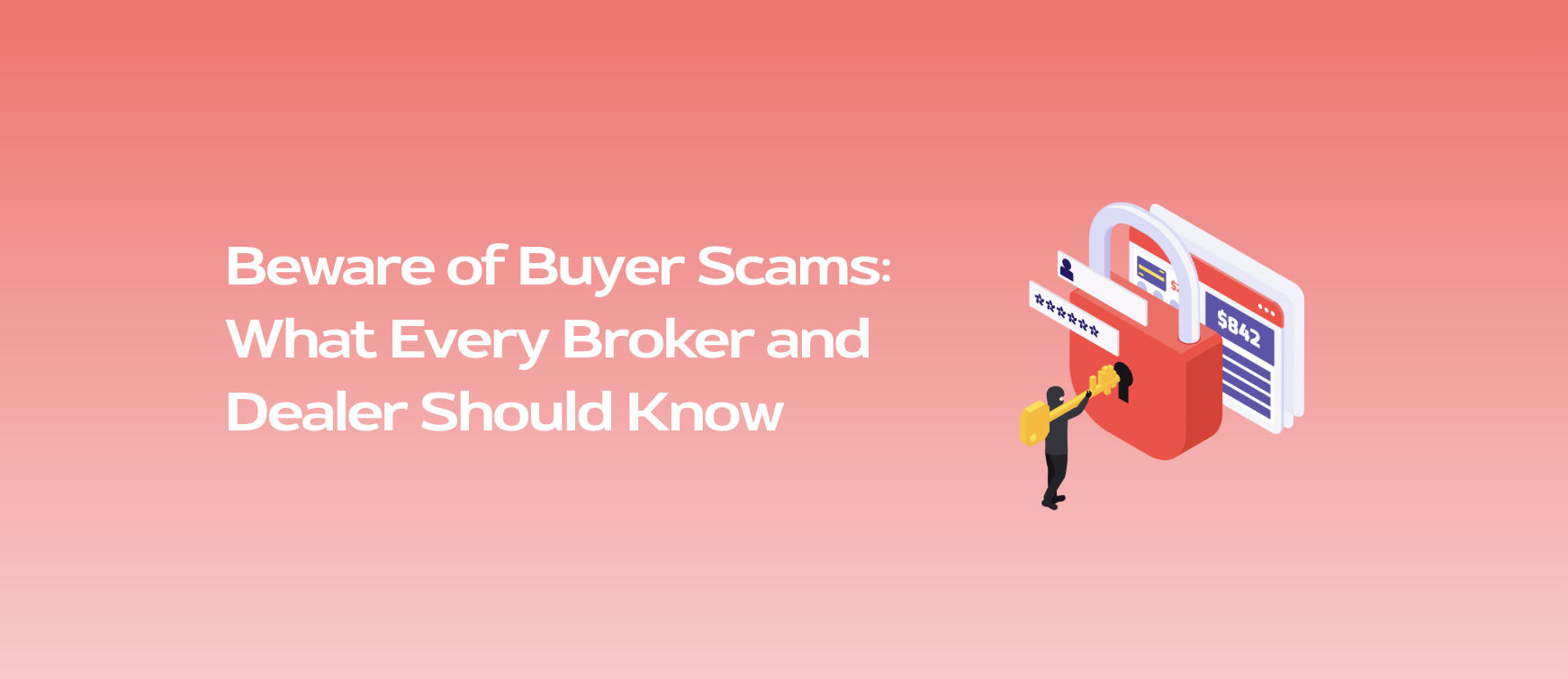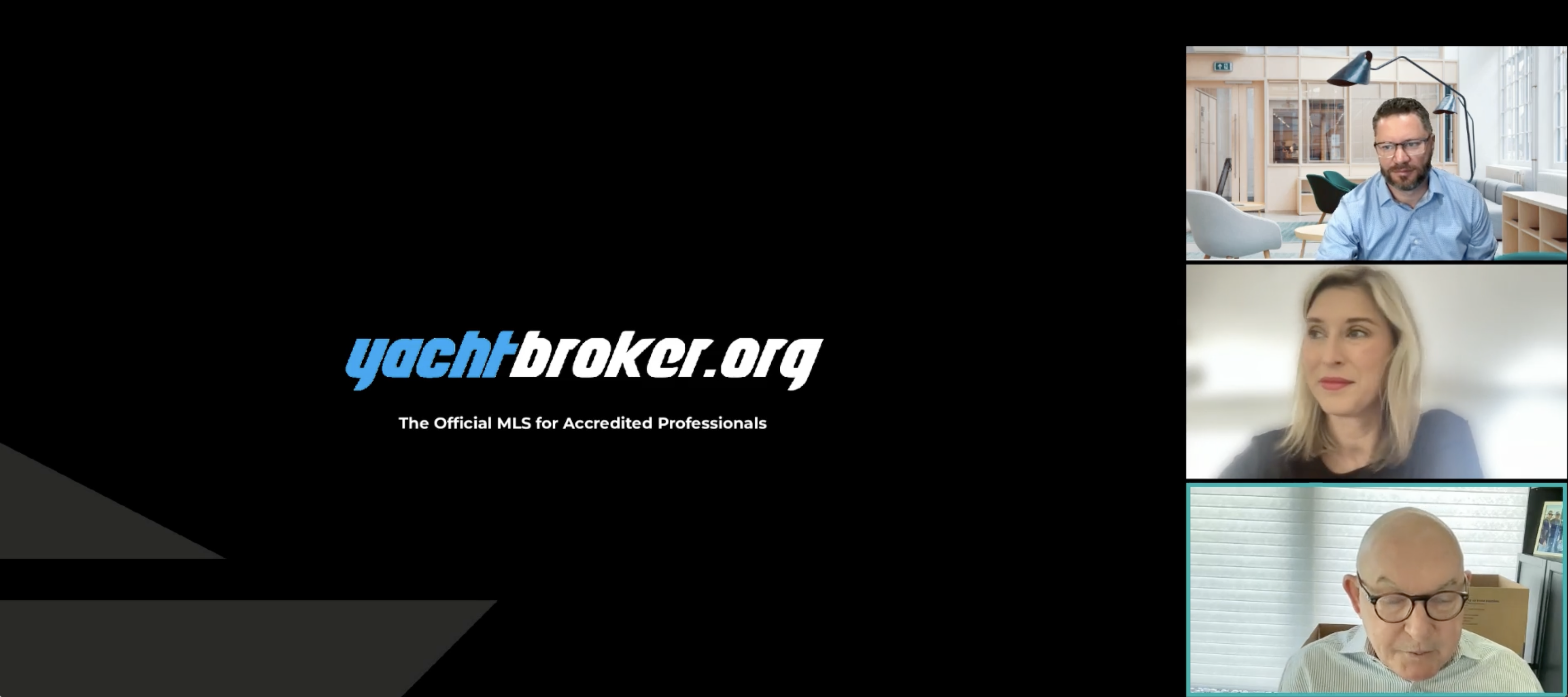Protecting Yourself from Fraudulent Buyers: What Boat Dealers and Yacht Brokers Need to Know
Protecting Yourself from Fraudulent Buyers: What Boat Dealers and Yacht Brokers Need to Know
The marine industry is seeing a rise in a deceptive scam that has long circulated in the automotive sector. This scheme targets individuals and businesses who list boats for sale online, often leading to financial loss and exposure of sensitive information. This article outlines how the scam works, the warning signs to recognize, and the steps you can take to protect yourself and your clients.
How the Scam Works
The scam typically unfolds in a familiar sequence:
1. Initial Contact: Shortly after a boat is listed for sale - whether through a brokerage, classified website, or social media - a supposed buyer makes contact by email, text, or phone. Their inquiry usually includes an urgency to view the vessel, often over the coming weekend.
2. Request for a Report: The buyer asks the seller to provide a boat history report before committing to a visit. While legitimate buyers can easily obtain these reports on their own, scammers falsely claim that only the seller is authorized to request it.
3. Pushback and Redirection: If the seller offers a report from a reputable provider such as Boat History Report, the buyer rejects it, citing vague dissatisfaction or “past issues.” They then insist the seller purchase a report from a particular website - often one controlled by the scammers.
4. Disappearance After Payment: Once the seller pays for the report, the buyer vanishes. There is no visit, no reimbursement, and no actual interest in the boat.
5. Data and Financial Risk: Beyond losing money, sellers may also unwittingly provide scammers with personal and payment information that can be used for further fraud.
Why This Scam Is Spreading in the Marine Market
With boat sales increasingly moving online, bad actors are exploiting common practices and buyer-seller trust to launch these scams. While the tactic has long existed in the used car market, it has now begun appearing with greater frequency in marine listings.
Red Flags to Watch For
To help you and your clients identify potential scams, be on the lookout for these warning signs:
• A buyer who refuses to obtain their own history report and pressures the seller to do it.
• Claims that only the boat’s owner can legally or technically request a report (this is false).
• Instructions to use a specific, unfamiliar report site instead of a known and established service such as Boat History Report.
• Rejection of legitimate reports without cause, often followed by insistence on a specific alternative.
• Language intended to create urgency or emotional pressure (e.g., “I need this today to get a loan approved,” or “I’ve had bad experiences and only trust this site”).
How to Protect Yourself and Your Clients
1. Raise Awareness Among Staff and Sellers: The most effective way to prevent fraud is to educate those involved in the sales process. Share this scam structure with brokers, dealership staff, and customers. Education is the first line of defense.
2. Preempt Fraudulent Tactics: Consider providing a verified history report within your listings proactively. This may deter scammers by removing their primary manipulation tool.
3. Take Time to Validate: Never act under pressure. Take time to verify any requested website, especially if it’s not one you’ve used before.
4. Verify Report Providers: Look for a longstanding reputation, secure domain (https://), professional contact information, and visible third-party reviews. You may also use WHOIS databases to check the age and ownership of any unfamiliar domain.
5. Report Incidents: If you suspect a scam, report it to your local marine industry association and trusted industry partners, including Boat History Report. Sharing this information can help protect others in the community.
______________________________________________________________________________
A Note from Boat History Report
We want to be clear: Boat History Report is NOT associated with these scams in any way.
As a member of IYBA for over 10 years, we have built partnerships that reflect our ongoing mission to enhance integrity, accountability, and fraud prevention across the boating marketplace. If you or your clients ever have concerns or questions about the legitimacy of a report or the conduct of a prospective buyer, please reach out to us directly. We are here to help ensure safe and transparent transactions in the boating market.
Boat History Report dealer/broker info: https://boathistoryreport.com/dealer/
Phone: 1-800-441-7599
Email: info@boathistoryreport.com
About the Author
Caroline Mantel is the Director of Business Development at Boat History Report and a recognized leader in marine fraud prevention. She serves as 2nd Vice President of the International Association of Marine Investigators (IAMI), is a Board Member of the National Marine Lenders Association (NMLA), and a member of both the National Boating Safety Advisory Committee (NBSAC) and the Sea Tow Boating Safety Advisory Council. Caroline frequently speaks on fraud and risk topics at national and regional marine conferences and collaborates closely with industry associations such as YBAA, IYBA, NASBLA, and law enforcement agencies to advance awareness and prevention initiatives.
Article Author: Caroline Mantel





